7CO03 Personal effectiveness, ethics and business acumen
- February 13, 2024
- Posted by: Scarlett
- Category: CIPD Level 7

Success in any business relies on 7CO03 Personal effectiveness, ethics and business acumen. Being personally effective means setting priorities, staying organized, and staying true to your values. It involves making choices that align with both legality and ethics. Understanding business acumen is crucial; it involves comprehending financials, market trends, and crafting successful business strategies. Together, these aspects lay the foundation for a thriving entrepreneur. In this CIPD 7CO03 assignment example, we will delve into each concept, offering a clearer insight into how they synergize to establish a prosperous business.
Task 1
AC 1.1 Ethical Standpoints in People Practices
| Ethical Approach | Description |
| Utilitarian Approach | Advocates actions for the greatest good for the greatest number of people. In people practices, promotes actions leading to positive outcomes for the majority of employees. |
| Rights Approach | Asserts that individuals have basic rights that must be respected. In people practices, promotes actions respecting employees’ rights, such as a safe and healthy work environment. |
| Justice Approach | Advocates fair and just actions. In people practices, promotes fairness and equity for all employees, ensuring equal opportunities for career advancement. |
| Common Good Approach | Advocates actions for the common good. In people practices, promotes actions benefiting the organization as a whole, such as investing in employee development. |
AC 1.2 Business Improvements Justification
Promotion of Fairness and Transparency:
As an HR Professional, fairness and transparency ensure employees feel valued and contribute fully to the organization.
Well-Being:
A healthy workforce is crucial for organizational effectiveness. Promoting well-being ensures motivated, productive, and supported employees.
Employee Voice:
Giving employees a voice fosters confidence, ensuring they can contribute to decisions affecting them.
Learning:
Promoting learning supports employee development, enabling them to adapt to workplace demands and progress in their careers.
AC 1.3 Self-Evaluation of Personal and Professional Integrity
Ethical Practice:
Identify areas where personal values may be compromised, especially under external pressure.
Professional Courage and Influence:
Assess the ability to stand up for beliefs and use influence for positive change.
Valuing People:
Ensure all individuals are treated with respect, valuing diversity, and promoting inclusivity.
AC 1.4 Impact of Collaboration Across Boundaries
- Encourage knowledge sharing through training, networking, and mentoring.
- Provide opportunities for cross-boundary project collaboration.
- Foster communication, understanding, and appreciation of diverse perspectives.
- Promote an inclusive organizational culture that values diversity and equality.
Task 2
AC 2.1 Self-Awareness, Self-Management, and Continuous Self-Improvement
| Skills | Description |
| Self-Awareness | Understanding your own emotions and behaviors, recognizing strengths and weaknesses, and being aware of how emotions impact work performance. |
| Self-Management | Controlling your emotions and behaviors, staying motivated in challenging situations, setting goals, and working towards them even when faced with difficulties. |
| Continuous Self-Improvement | Commitment to continuously develop skills and abilities, always learning and growing to stay ahead and be the best version of yourself. |
These skills are crucial for all employees and especially important for leaders who need to set an example and manage themselves effectively for organizational success.
AC 2.2 Business Acumen for Commercial Benefits and Resilience
Commercial Benefits:
| Benefits | Description |
| Identify new business opportunities | Spotting potential areas for business growth and development. |
| Insights into how businesses work | Understanding the internal workings and drivers of businesses. |
| Better decisions about resource investment | Making informed choices on where to allocate resources. |
| Generate new ideas for value creation | Coming up with innovative ways to create value for the business. |
Managing Resilience:
Understanding how businesses respond to challenges helps in:
- Identifying early warning signs of potential problems.
- Developing contingency plans for disruptions.
AC 2.3 Impactful Behavior Aligned with Organizational Vision
To be an effective business professional, align your behavior with:
- Personal Effectiveness:
- Manage time, resources, and performance to meet goals.
- Set realistic goals and review progress regularly.
- Ethics:
- Provide a framework for decision-making and behavior.
- Build trust, improve reputation, and enhance credibility.
- Business Acumen:
- Understand how businesses operate.
- Make informed decisions using financial data.
By demonstrating personal effectiveness, ethics, and business acumen, you contribute to organizational success and positively impact your career.
Task 3
3.1 Curiosity and Passion for Deep Learning
Demonstrating curiosity and passion for deep learning has greatly improved my personal effectiveness. Here’s how:
| Skills Acquired | Impact on Role |
| Time Management | Improved ability to manage time and set priorities. |
| Effective Communication | Learned how to communicate effectively. |
| Conflict Resolution | Acquired skills to handle difficult situations. |
| Continuous Learning | Staying up-to-date with the latest trends and developments. |
3.2 Continuing Professional Development (CPD) Plan
For effective CPD, consider this approach:
Planned Learning Activities:
| Activities | Benefits |
| Reading Articles | Staying informed about industry trends. |
| Online Courses | Enhancing skills relevant to your field. |
| Seminars/Workshops | Gaining insights on topics of interest. |
Reflection:
Reflect on each learning activity to consolidate knowledge and make it more effective.
Goal-Driven Improvement:
Identify areas for improvement, set goals, and create a plan to address them. Reflect on your learning to enhance its effectiveness.
3.3 Evidence-Based Critical Thinking with Data Analytics
Benefits of evidence-based critical thinking in data analytics:
- Informed Decision-Making: Make accurate decisions based on data.
- Understanding Business Landscape: Identify trends impacting the business.
- Strategic Planning: Support strategic decisions and future planning.
- Effective Communication: Provide concrete data to support ideas.
3.4 Impact of Sharing Learning on Organizational Success
Sharing learning within an organization contributes significantly to success:
| Benefits | Impact on Organizational Success |
| Increased Productivity | Quick application of shared knowledge leads to enhanced productivity. |
| Improved Innovation | Knowledge-sharing fosters creativity and innovative solutions. |
| Enhanced Customer Service | Well-informed employees provide excellent customer service. |
| Increased Retention | Employees feel valued and are more likely to stay with the company. |
| Improved Profitability | Companies investing in sharing learning tend to be more profitable. |
Task 4
4.1 Approaches to Decision-Making on Complex Issues
Decision-making can be tricky, especially for important issues. It’s crucial to own up to your decisions and fix mistakes when needed. Here are simple tips for making better decisions:
| Decision-Making Tips | Description |
| Gather Relevant Information | Research and consider all options before deciding. |
| Consult with Others | Seek input from those affected by your decision. |
| Take Your Time | Avoid rushing; take the time needed for a thoughtful decision. |
| Be Open to Change | Be ready to reconsider if new information comes up. |
| Trust Your Instincts | Sometimes, your gut feeling is essential in decision-making. |
| Be Confident | Once decided, stick to your choice and trust your judgment. |
| Learn from Mistakes | Mistakes happen; learn from them for better decisions in the future. |
4.2 Appropriate Influencing Style
Different situations call for different influencing styles. Here are some influencing styles:
| Influencing Styles | Description |
| Rational Persuasion | Use logic and reasoning to convince others. |
| Emotional Manipulation | Appeal to emotions to persuade someone. |
| Coalitional Manipulation | Form alliances to gain support for your point of view. |
4.3 Promoting Organisational Improvement
Promoting improvement in an organization requires courage, political acumen, and a willingness to challenge:
| Strategies | Description |
| Courage | Speak up and suggest positive changes for improvement. |
| Political Acumen | Navigate the complex political landscape effectively. |
| Willingness to Challenge | Challenge the status quo for positive change. |
4.4 Benefits of Networking
Networking offers numerous benefits for both individuals and organizations:
Individual Benefits:
| Benefits | Description |
| Build Relationships | Establish connections with others in your field. |
| Gain New Skills and Knowledge | Learn from others and stay updated on industry trends. |
| Find New Opportunities | Discover new career or project opportunities. |
| Advance Your Career | Networking can lead to job opportunities and career growth. |
Organizational Benefits:
| Benefits | Description |
| Gain New Insights and Perspectives | Learn from other organizations and gain different viewpoints. |
| Access New Resources | Tap into resources available through your network connections. |
| Opportunities for Collaboration | Find chances to collaborate with other organizations. |
| Building Reputation | Networking can enhance the organization’s reputation. |
| Increasing Visibility | Increased visibility in the industry and potential collaborations. |
Must Read:
Why Choose Us?
- GPT Zero
- 100% Non-plagiarised Papers
- Dedicated human resource writers
- 24/7 /365 Service Available
- Affordable Prices
- Money-back and Privacy guarantees
- Unlimited Amendments upon request
- Satisfaction guarantee
